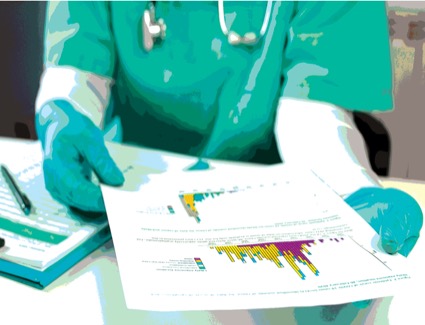Clinicians and patients faced significant disruption in liver cancer screening during the early COVID-19 pandemic, according to survey results reported at the 2021 European Association for the Study of the Liver’s Digital Liver Cancer Summit.
Researchers used the experience of 76 liver cancer treatment centers in Europe, North America, South America, Asia and Africa in their analysis. The study documents the evolution in clinical practice between March and June 2020, during the first wave of the pandemic.
“Liver cancer screening did not fully stop, although clinical practice had to be modified,” said Sergio MuÑoz-MartÍnez, MD, of the Barcelona Clinic Liver Cancer Group (BCLC) at the Hospital Clinic of Barcelona and first author of the study. The Ospedale Maggiore Policlinico of Milan and BCLC group- CIBEREH led the project.
The centers collectively usually treated approximately 9,600 new patients per year in the pre-pandemic period. In 2019, these centers carried out almost 40,000 follow-up visits related to hepatocellular carcinoma and more than 6,000 visits related to intrahepatic cholangiocarcinoma.
Only 10 of the 76 centers reported making no changes in their clinical practice, although patients at three of these institutions quickly grew more reluctant to come to the clinic because of fear of contracting the coronavirus.
Among the centers that did alter their practice, 80% delayed screening programs and 40% changed diagnostic procedures or use of images for staging and treatment decisions. These changes could be harmful to patients over time.
“The modifications in liver cancer management due to this crisis raise the possibility of more patients being diagnosed with a later stage of cancer,” Dr. MuÑoz-MartÍnez said.
The data did have a few bright spots. More than 93% of clinics continued to provide systemic therapy for the most advanced cancer patients, even at the peak of the crisis. In addition, specialized liver oncology nurses proved essential for patient telephone and digital consultation to patients and their families. Dr. MuÑoz-MartÍnez said this finding shows the important role that oncology nurses play in patient care.
—Marcus Banks
Dr. MuÑoz-MartÍnez reported no relevant financial disclosures.
This article is from the June 2021 print issue.


